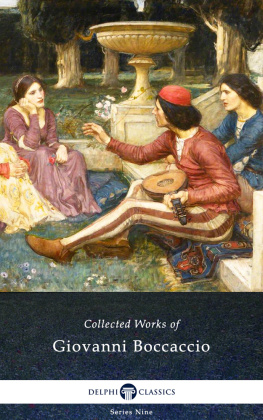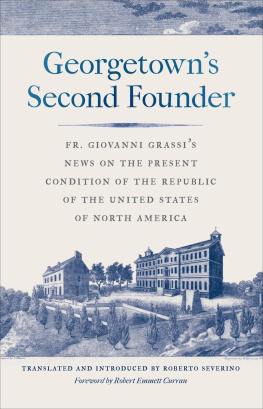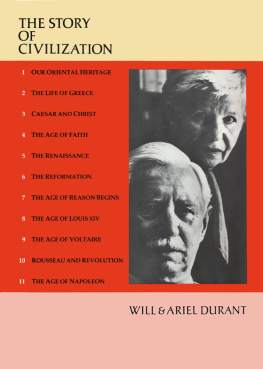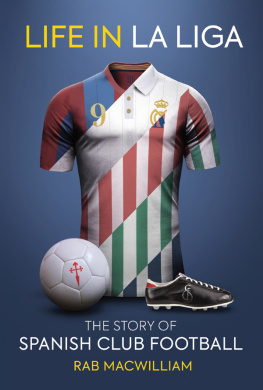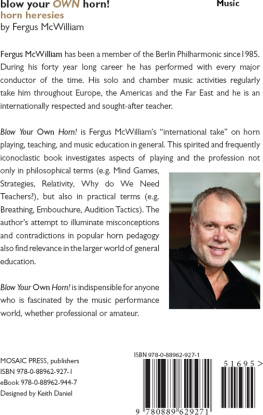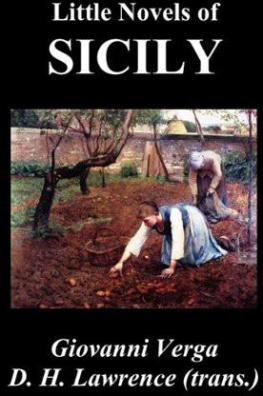Giovanni Boccaccio - The Decameron
Here you can read online Giovanni Boccaccio - The Decameron full text of the book (entire story) in english for free. Download pdf and epub, get meaning, cover and reviews about this ebook. year: 1995, publisher: Penguin Group, genre: Detective and thriller. Description of the work, (preface) as well as reviews are available. Best literature library LitArk.com created for fans of good reading and offers a wide selection of genres:
Romance novel
Science fiction
Adventure
Detective
Science
History
Home and family
Prose
Art
Politics
Computer
Non-fiction
Religion
Business
Children
Humor
Choose a favorite category and find really read worthwhile books. Enjoy immersion in the world of imagination, feel the emotions of the characters or learn something new for yourself, make an fascinating discovery.
- Book:The Decameron
- Author:
- Publisher:Penguin Group
- Genre:
- Year:1995
- Rating:4 / 5
- Favourites:Add to favourites
- Your mark:
- 80
- 1
- 2
- 3
- 4
- 5
The Decameron: summary, description and annotation
We offer to read an annotation, description, summary or preface (depends on what the author of the book "The Decameron" wrote himself). If you haven't found the necessary information about the book — write in the comments, we will try to find it.
The Decameron — read online for free the complete book (whole text) full work
Below is the text of the book, divided by pages. System saving the place of the last page read, allows you to conveniently read the book "The Decameron" online for free, without having to search again every time where you left off. Put a bookmark, and you can go to the page where you finished reading at any time.
Font size:
Interval:
Bookmark:

THE DECAMERON
GIOVANNI BOCCACCIO was born in 1313, either in Florence or Certaldo, a town in Florentine territory. His father, a prosperous merchant banker with the Compagnia dei Bardi, moved to Naples in 1327 as general manager of the banks Neapolitan branch, taking the adolescent Boccaccio with him. He entertained notions of his son following in his footsteps, and apprenticed him to the trade, but when he realized that Boccaccio had no vocation for banking he arranged for him to study canon law. This was equally unsuccessful, and after a few years Boccaccio gave up his legal studies and devoted his time to literature and scholarship. At this period Naples, under King Robert of Anjou, was one of the major intellectual and cultural centres in Europe. To judge from references in his Latin epistles, Boccaccio considered his sojourn in Naples as the happiest period in his life. For political and economic reasons he was forced to return to Florence in 1341. His experiences during what is now known as the Black Death (13479) are recorded in the introduction to the Decamerons First Day, and when he met Petrarch in 1350 he had probably begun work on his great narrative masterpiece. He had already gained a reputation in Florence as an eloquent and persuasive man of letters, and the government entrusted him with several official missions. In 1354 and 1365 he was sent to the Papal Court at Avignon, and in 1367 to Rome in order to congratulate Urban V on the temporary return of the papacy from its so-called Babylonian Captivity. He revisited Naples three times, in 1355, 1362 and 1370. He had moved to Certaldo after the second of these visits and spent most of the last thirteen years of his life there, dying in 1375, just over a year after Petrarch. Boccaccio wrote several other works, including the Elegia di Madonna Fiammetta, which has been described as the first modern psychological novel, and the narrative poem Filostrato, on which Chaucers Troilus and Criseyde is based.
G. H. MCWILLIAM, a former Fellow of Trinity College, Dublin, was Professor Emeritus of Italian in the University of Leicester. His publications include studies of Dante, Boccaccio, Verga, Pirandello, Ugo Betti, Italian literature in Ireland, Shakespeares Italy, and the pronunciation of Italian in the sixteenth century. He translated plays by Italo Svevo, Pirandello and Betti, and poems by Salvatore Quasimodo. His translation of Vergas Cavalleriarusticana and Other Stories was published by Penguin Classics in 1999. He held the Italian Governments silver medal for services to Italian culture. He died in January 2001.
Giovanni Boccaccio
TRANSLATED
WITH AN INTRODUCTION AND NOTES BY
G. H. MCWILLIAM
Second Edition
PENGUIN BOOKS
PENGUIN BOOKS
Published by the Penguin Group
Penguin Books Ltd, 80 Strand, London, WC2R 0RL, England
Penguin Putnam Inc., 375 Hudson Street, New York, New York 10014, USA
Penguin Books Australia Ltd, 250 Camberwell Road, Camberwell, Victoria 3124, Australia
Penguin Books Canada Ltd, 10 Alcom Avenue, Toronto, Ontario, Canada M4V 3B2
Penguin Books India (P) Ltd, 11 Community Centre, Panchsheel Park, New Delhi 110 017, India
Penguin Books (NZ) Ltd, Cnr Rosedale and Airborne Roads, Albany, Auckland, New Zealand
Penguin Books (South Africa) (Pty) Ltd, 24 Sturdee Avenue, Rosebank 2196, South Africa
Penguin Books Ltd, Registered Offices: 80 Strand, London, WC2R 0RL, England
www.penguin.com
This translation first published 1972
Second edition, with new introduction, bibliography, maps and notes, published 1995
Reprinted 2003
Copyright G. H. McWilliam, 1972, 1995 All rights reserved
The moral right of the editor has been asserted
Except in the United States of America, this book is sold subject to the condition that it shall not, by way of trade or otherwise, be lent, re-sold, hired out, or otherwise circulated without the publishers prior consent in any form of binding or cover other than that in which it is published and without a similar condition including this condition being imposed on the subsequent purchaser
ISBN: 9781101487525
To Vittore Branca
Primus studiorum dux
.
.
.
.
.
.
.
.
.
.
.
.
.
.
.
.
.
.
.
.
.
.
.
.
.
.
.
.
.
.
.
.
.
.
.
.
.
.
.
.
.
.
.
.
.
.
.
.
.
.
.
.
.
.
.
.
.
.
.
.
.
.
.
.
.
.
.
.
.
.
.
.
.
.
.
.
.
.
.
.
.
.
.
.
.
.
.
.
.
.
.
.
.
.
.
.
.
.
.
.
First published in 1972, the present translation of the Decameron has been several times reprinted since that date, with occasional emendations of a distinctly minor complexion. Meanwhile, two further complete English translations of Boccaccios master work have appeared, the first by Peter Bondanella and Mark Musa in 1982, the second by Guido Waldman in 1993. My translation for Penguin Classics was compared with the BondanellaMusa version some years ago by the American scholar Christopher Kleinhenz, who concluded that both furnish texts that are remarkably close to Boccaccios original in meaning, tone, and nuance and that moreover, they provide most enjoyable reading, and that is, after all, one of the principal reasons why Boccaccio wrote the Decameron.
Naturally, I would not wish to dissent from either of those conclusions, but for some little time I have felt that something was lacking in the Penguin Decameron. The translation itself still seems in my not altogether impartial judgement to read surprisingly well, and a hand more dextrous than my own would be required to improve it to any significant degree. I have however taken this opportunity to make certain minor changes, one of them being the proverb that concludes the story of Alatiel (II, 7), where a slightly stilted and prosaic wording is replaced by something that is closer in spirit and cadence to Boccaccios original.
If the translation requires only marginal adjustment, my introduction to the first edition is now overdue for substantial revision. It provided the reader with a minimum of information about Boccaccios life and work, or about the reasons why the Decameron occupies so important a place in the history of western literature. Its original justification lay in its provision of a brief history of earlier attempts to translate the Decameron into English, highlighting their virtues and deficiencies, and hence showing why yet another translation was required. One or two of its more interesting points are preserved in the new introduction and in the notes to this second edition, but the main emphasis is now switched so as to focus in
For the monoglot, non-specialist English reader, as indeed for many students of Italian, the range of information available about Boccaccio and the Decameron is remarkably limited. The over-literal and often inaccurate American translation of Vittore Brancas Profilo biografico and sections of his Boccaccio medievale, flamboyandy entitled Giovanni Boccaccio: The Man and His Works
Next pageFont size:
Interval:
Bookmark:
Similar books «The Decameron»
Look at similar books to The Decameron. We have selected literature similar in name and meaning in the hope of providing readers with more options to find new, interesting, not yet read works.
Discussion, reviews of the book The Decameron and just readers' own opinions. Leave your comments, write what you think about the work, its meaning or the main characters. Specify what exactly you liked and what you didn't like, and why you think so.


